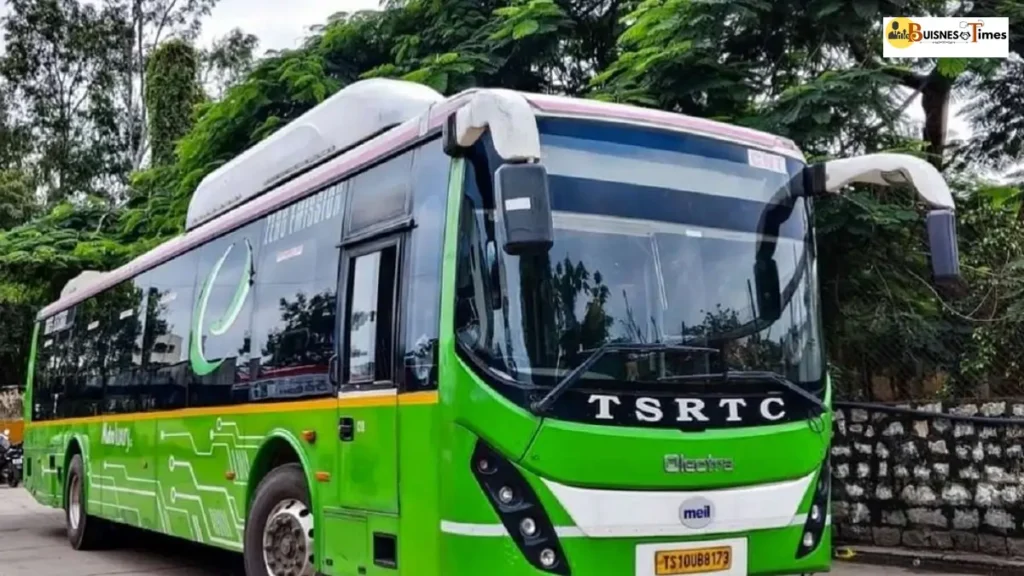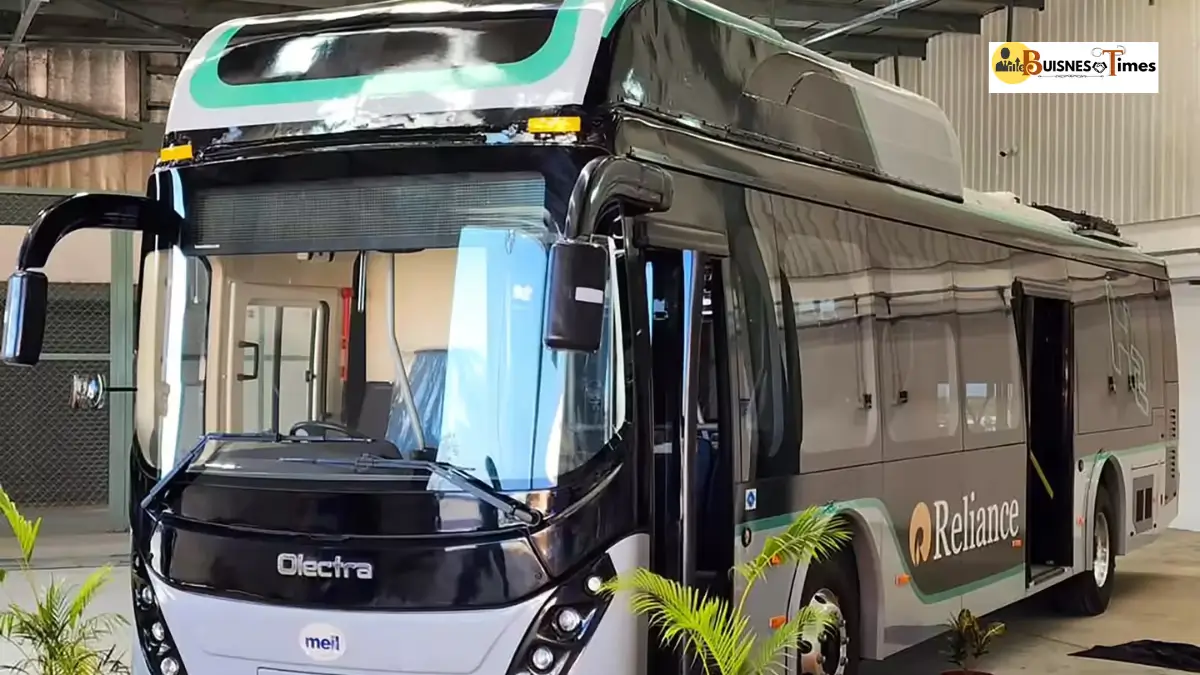Electric mobility in India is accelerating, and Olectra Greentech Ltd. is positioning itself at the forefront. The company, which already leads the Indian electric bus segment, is now gearing up to roll out vehicles powered by next-generation blade battery technology. With promises of higher range, lighter weight, and faster charging, the move could give Olectra a decisive edge over rivals like Tata Motors.

A New Phase for Olectra
According to Sharat Chandra, Chief Financial Officer of Olectra Greentech, the company is in the final stages of homologation for its blade battery-powered electric buses. The process, which validates compliance with safety and performance standards, is expected to be completed this month.
“We are planning to commercialise operations in small numbers from Q3 onwards,” Chandra said, hinting at a phased rollout strategy.
The company first showcased this technology earlier this year at the Bharat Mobility Global Expo 2025, highlighting its ambition to set new benchmarks in India’s electric bus ecosystem.
What Makes Blade Battery Technology a Game-Changer?
The blade battery, developed and popularized by Chinese EV giant BYD, has become a global benchmark for safety and efficiency. Unlike conventional lithium-ion batteries, blade batteries are:
- Lighter and safer – reducing risks of thermal runaway.
- Long-lasting – offering extended lifecycle compared to traditional packs.
- More energy dense – storing more power in less space.
- Faster to charge – cutting down downtime for commercial fleets.
Olectra believes these advantages will translate directly into better economics for fleet operators. The company expects a 30% performance boost due to the batteries’ lighter weight and efficiency.
“The blade battery promises not only longer ranges but also faster charging, enhancing performance, safety, and reliability. The performance is expected to be 30% better, achieved by lighter weight batteries which are 30% less than previous ones,” Chandra explained.
Range Advantage Over Rivals
One of the biggest selling points for Olectra’s upcoming buses is extended range. The company expects the drive range of its 12-meter electric bus to increase from the current 300 km to 400 km per charge.
For comparison:
- Tata Motors’ 12-meter e-bus currently offers a range of about 200 km, putting Olectra significantly ahead on this front.
- The increased range could reduce fleet downtime, improve operational efficiency, and make Olectra buses more attractive for long-distance and urban transport operators.
This leap in performance is critical at a time when state transport undertakings (STUs) and private operators are evaluating long-term EV fleet investments.
Order Book and Market Leadership
Olectra is already the market leader in India’s electric bus segment, and its growth trajectory underscores rising demand for green mobility solutions.

As of June 2025, Olectra’s net order book stood at 10,193 units, which includes:
- 5,120 buses ordered by the Maharashtra State Road Transport Corporation (MSRTC)
- 4,500 buses from Mumbai’s Brihanmumbai Electric Supply and Transport (BEST) undertaking
This strong pipeline shows both state-backed and municipal operators’ confidence in Olectra’s offerings.
Scaling Up Manufacturing
To meet this growing demand, Olectra is rapidly scaling up production capacity at its Hyderabad facility. Currently, the company manufactures about 10 buses per day in a single shift. Plans are underway to double this to 20 buses per day, provided supply chain issues remain under control.
By FY26, Olectra aims to hit an annual capacity of 5,000 buses, aligning with India’s ambitious EV adoption targets.
Policy Tailwinds and Government Support
The Indian government is actively pushing EV adoption under schemes like PM E-Drive, which provides subsidies to encourage public transport operators to shift to electric fleets.
- Under the revised schedule, nearly 10,900 buses are eligible for subsidy support.
- The incentive pool stands at ₹3,500 crore, translating into a project value of nearly ₹10,900 crore.
Olectra has confirmed its participation in this scheme, which could further strengthen its market share.
India’s Growing EV Bus Market
The timing could not be better for Olectra. India’s electric bus market is experiencing double-digit growth, reflecting the country’s shift towards sustainable urban mobility.
- Between January and June 2025, electric bus sales jumped by 33%, reaching 2,100 units compared to 1,571 units during the same period in 2024.
- With major cities like Delhi, Mumbai, Bengaluru, and Hyderabad investing in electric public transport, the demand curve is expected to steepen further in the coming years.
The Road Ahead
With blade battery technology, Olectra isn’t just keeping pace with global EV trends — it is seeking to set a new benchmark in India. While Tata Motors and other competitors remain strong players in the space, Olectra’s focus on range, performance, and timely delivery could consolidate its leadership.
Industry analysts believe that as state and city transport bodies issue more tenders for electric buses, technological differentiation will become a deciding factor. A bus offering 200 km vs. 400 km per charge could make the difference between winning or losing major contracts.
For Olectra, the adoption of blade batteries signals its ambition to be more than just a domestic leader. With BYD already proving the technology globally, Olectra’s decision may pave the way for India to adopt world-class EV standards in mass transport.
Disclaimer : This article is for informational purposes only and is based on publicly available statements and reports. It does not constitute investment advice or endorsement of any company. Readers are encouraged to consult official sources for further details.

